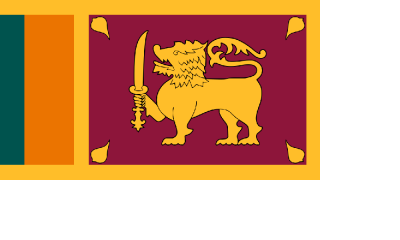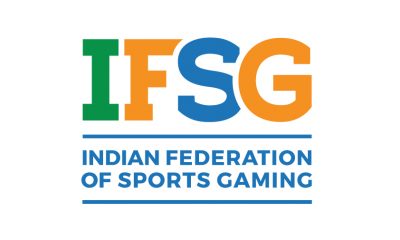Legal & Regulatory
Feature: Nishith Desai Associates Partner Gowree Gokhale discusses ongoing poker, rummy litigation and future of Indian gaming industry

In this interview, we present Gowree Gokhale, Partner and Intellectual Property, Technology, Media and Telecommunications (TMT) head of Nishith Desai Associates (NDA), a leading Indian law firm with offices in Mumbai, Delhi, Bangalore, Munich, Singapore and Silicon Valley. Ms. Gokhale has over 17 years of legal experience and is well known in the technology, media & entertainment, gaming, telecom and pharma industries. In this feature, she presents her views on the many unresolved legal issues in the gaming industry as well as likely course of action that could be taken by the new government as far as regulation of online gaming is concerned.
Q. NDA is probably the only law firm in India having a big focus on gaming within its TMT practice area. Could you start by giving us a brief overview of the practice area especially work done in gaming?
Gowree Gokhale (GG): Essentially the TMT practice started with focus on technology in the early 2000s because we focused on dotcom companies and start-ups. Thereafter, we realised that there is a good scope in the media and telecom space also. Because of our focus on TMT industries and due to convergence between these areas, gaming queries started coming in more often than not in the context of development of gaming software, online or mobile contests etc.The expansion of gaming industry was the due to online and on mobile platforms. Since gaming started on a pan-India level, we had to look at each and every state law and advise clients on both Central and state legislations.
The kind of matters that we do for example, relate to mobile or television contests, advising on how to structure competition and games so that they do not tread the line of gambling. A lot of activity started in the online space with Sikkim coming up with the online gaming licenses; we advised Indian and foreign players on structuring the entire process.In the more recent past, we have regularly dealt with the structuring of rummy, poker and other games of skill.
Q. On the issue of games of skill, two important decisions are pending in courts today. The first is the Mahalakshmi Cultural Association matter which has to decide whether rummy can be played for stakes. The second is the M/s Gaussian Networks matter on whether poker is a game of skill and whether real money online poker is legal. These two decisions are widely believed to be critical for the future of the skill games industry. What is your take on these two pending matters?
GG: In so far as rummy is concerned, the legislation is pretty clear to say that if it is a game of skill, then the entire legislation does not apply. So my personal view is that if the entire legislation does not apply (by virtue of the 1968 Satyanarayana decision of the Supreme Court), there is no question of going into whether service fee is obtained or whether there are stakes. The Supreme Court has clearly ruled in the Satyanarayana decision that rummy is a game of skill. So the moment rummy is a game of skill, you do not need to go further. The only concern from the enforcement authorities would be whether under the garb of rummy the operators are carrying out other betting activities as well.
The last paragraph of Satyanarayanacase is tricky[1]. The Chennai High Court has interpreted the last paragraph to disallow staking of money on rummy, but some other High Courts have taken a different view.
In Mahalakshmi case, it needs to be seen whether Supreme Court will deal with the question of legality of taking a share of profit from the stakes. I hope the Supreme Court gives clarity on the last paragraph of the Satyanarayana case.
As far as the District Court opinion on the Gaussian Networks case is concerned, I think the Court has gone beyond its jurisdiction in rendering the opinion. An opinion should be based on interpretation of the statute and not on the basis of conjectures (such as possibility of rigging of online games). As far the element of skill is concerned, at least as far as Texas Hold em poker is concerned, looking at the rummy decision and other jurisprudence, there is a good chance that it could be held as a game of skill.
Q. There is a view that even sports betting could be classified as a game of skill in light of the decision on rummy and 1996 judgment holding horse betting to be a game of skill and consequently sports betting could even be legal at present. What is your take on sports betting and need for legalising betting?
GG: Keeping aside the question of whether betting on games of skill like horse-racing or cricket is legal now, it is important to discuss whether sports betting should be legalised and allowed in the Indian context. Philosophically we have to decide whether something which in any case may be happening on a large scale should be allowed and legalised or banned. I believe it should be legalised and regulated.
Just as cricket is a religion in India, betting on cricket is also a passion and it should be accepted. Also from the government perspective, this would be a good source of revenue. As we have seen in other jurisdictions if you give betting a legal status, it is possible to control and regulate the activity in a better manner. This issue should not be confused with the match fixing issues as is being done now. That can be separately handled.
Now coming to the question of whether sports betting is legal today, I think different state gaming legislations are worded differently, some use the term betting, so it would not be possible for me to take a view that betting on games of skill is legal.
Q. The Bombay High Court had passed an order some time ago directing the Computer Emergency Response Team (CERT) to ban online betting website Betfair. However the order has not been enforced till date.
GG: The IT (Information Technology) Act & Rules are Central Rules but if a state (like Sikkim) wants to allow online gaming then it has to implement geo-blocking which is a cumbersome process. As per the Constitution, states are empowered to legislate on some subjects. However, given the national and transnational aspects involved in online gaming, it is best that there is nationwide regulation of online gaming. I believe online gaming should be regulated a central level.
Q. Do you think it would be possible for the Central government to convince states to devolve of its powers to legislate on gaming and get a consensus for a federal legislation?
GG: There are two aspects involved. Physical gaming and casinos is something which is local and you have to create a culture and proper environment for example casinos may be permitted for tourism purposes. Thus, regulation of physical casinos may be left to the state governments. However, for something like online gaming which is impossible to regulate at the state level and things like geo-blocking can be easily circumvented, it is advisable to have a Central legislation.
It depends on the political will of the Central government. Just like Goods & Services Tax (GST), there could be a cooperative mechanism and coordination between the Centre and the States to have a legislation at the Central level.
Q. How do you see the gaming industry progressing in the near future? Do you feel there could be progress in the aim for regulating online gaming given that FICCI and other bodies have tried for the past couple of years and there has been no significant movement?
GG: I would not comment on what happened earlier. I think the earlier government did have issues on having the right majority and mandate. They had difficulties in terms of managing a coalition government. The current government has the mandate and thus it would be easier for the new government to implement a new policy. If FICCI along with other stakeholders in the industry put a right landscape outlining the positives, negatives and a way forward then to get these issues implemented would be much easier- this is just my view of how things can be taken ahead in future.
Q. What is your guess on the timelines by which we could expect action by the government on the difficulties faced by the gaming industry?
GG: It is too soon to say anything. The new government has a lot of things to resolve. They have to cover a lot of ground including gaining confidence of people and foreign companies. The change is not going to happen overnight. However if the government sees a business and commercial case it could take anywhere between a year to 2 years. It may take even longer since there are lot of laws that would have to be considered: one would have to look at IPC, Anti-Money laundering legislation, exchange control laws for cross border liquidity, payment system issues etc.
I think to get views of various stakeholders and make an informed choice; the government should come out with a consultation paper. There has to be a consolidated approach and one has to look holistically at different issues. The models of different jurisdictions will have to be studied before taking a call. It is also important to have an independent gaming commission to monitor and regulate the industry.
It will definitely take time to bring in such changes. It took a lot of time for the Competition Commission of India (CCI) to come into effect. Here, we are talking of a completely new framework, there is no policy on sports betting or gaming unlike other sectors and hence these changes will definitely not come quickly.In the short-term issues like relaxation of FDI policy, allowing foreign technological collaboration for gaming companies can be considered by the government.
[1] The last paragraph of the Satyanarayana case reads as follows: Of course, if there is evidence of gambling in some other way or that the owner of the house or the club is making a profit or gain from the game of Rummy or any other game played for stakes, the offence may be brought home. In this case, these elements are missing and therefore we think that the High Court was right in accepting the reference it did.


















vikram
June 15, 2014 at 1:46 pm
Is it legal to bet in online betting sites like bet365. bet365 is based in UK. If it is legal , then when we get back the winnings , is any tax applicable on that , if yes then what is the amount.
If online betting is illegal , is there any way to do it without getting caught ;).
amit
July 21, 2014 at 1:30 am
online teen patti is legal or illegal if it is illegal what should a person face the law